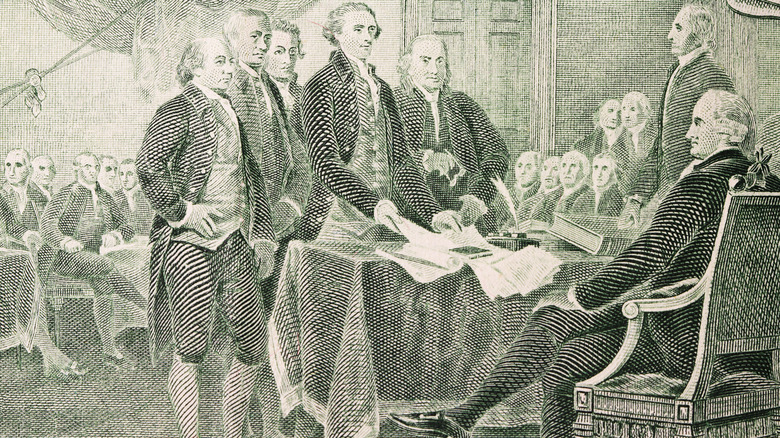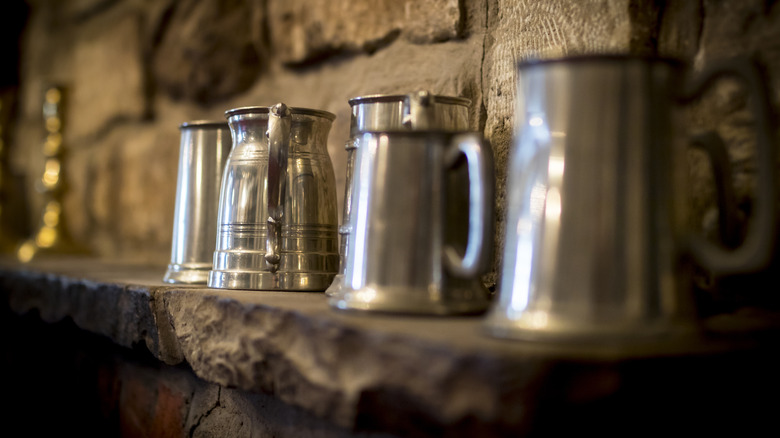The Staggering Amount Of Alcohol The Founding Fathers Drank
When the "Founding Fathers" of the United States weren't revolting against British rule and formalizing modern democracy, they were doing what under current societal norms would qualify as some very heavy drinking. Of course, as reported by the Huffington Post, this was the situation with most American colonists, not just the ones who ended up making it onto United States currency. The average person living in colonial America drank about seven gallons of alcohol each year; the average modern annual amount is about two gallons. Colonists didn't have the same relationship with alcohol that modern Americans do. Beer and hard cider were categorized as food items as well as status symbols; only very poor people slaked their daily thirsts with water. Furthermore, the safety of drinking water couldn't be guaranteed, so it was actually safer to drink alcohol, and so people did, adults and children alike.
On top of the actual instability of a safe water supply, it was the belief in Great Britain at the time that water in general was bad for one's health. As most colonists had come to the United States from England, they brought British beliefs and customs with them and continued living them out. Alcohol was considered medicinal for sick people, restorative for old people, and a practical, rather than recreational, part of most people's daily diets. According to Wine Folly, explorers from Spain brought the custom of drinking wine to the United States.
Alcohol was an intergral part of the colonial American diet
Per "A History of Wine in America: From Beginnings to Prohibition" (via the University of California Press), colonists so prioritized being able to produce alcohol that by 1629, some of the earliest American crops included apple orchards planted in Massachusetts in order to make hard cider. By 1700, vineyards were planted in New York, Virginia, and the Carolinas. White notes that pregnant and nursing women were given "sustaining" drinks of rum and milk, and children drank alcohol with their meals, although they were expected to eat bread first. People drank all day in work, home, and social settings, and it was considered impolite not to offer someone a drink when receiving them, as well as to refuse a drink when it was offered. Alcohol was cheaper than either tea or coffee.
People who visited others as part of their jobs, including doctors, preachers, and salespeople, would have drinks at every stop, and those who worked in factories and other workplaces expected alcohol and breaks to drink it as part of their compensation. One of the first labor strikes in the United States occurred in Boston, Massachusetts in the 1640s, responding to a proposal to cut off alcohol rations for workers. The workers won and continued to have daily 11 a.m. and 4 p.m. alcohol breaks. According to his historical papers, George Washington himself had a contract with his gardener that read in part, "four dollars at Christmas with which he may be drunk for four days and nights; two dollars at Easter to effect the same purpose..."

